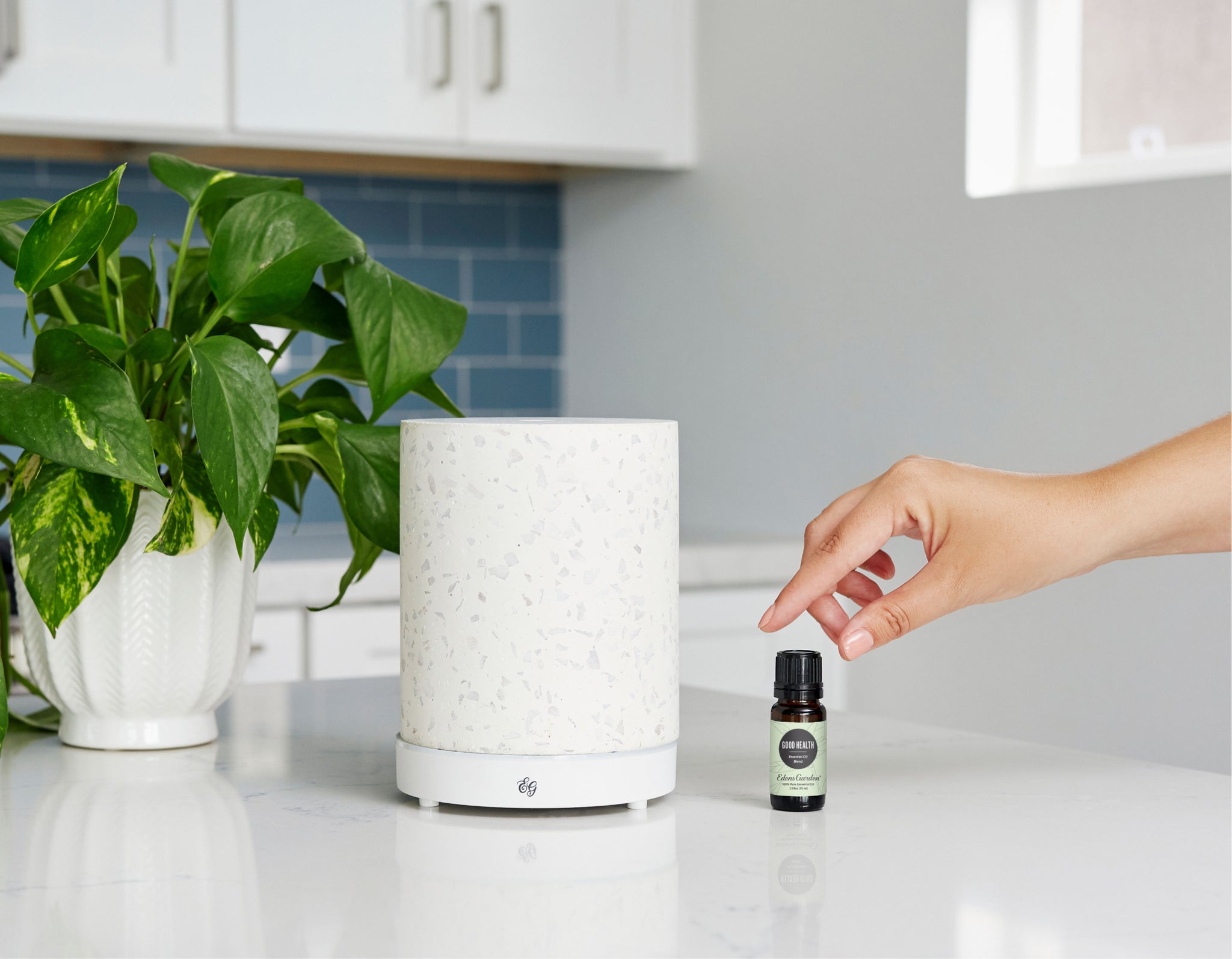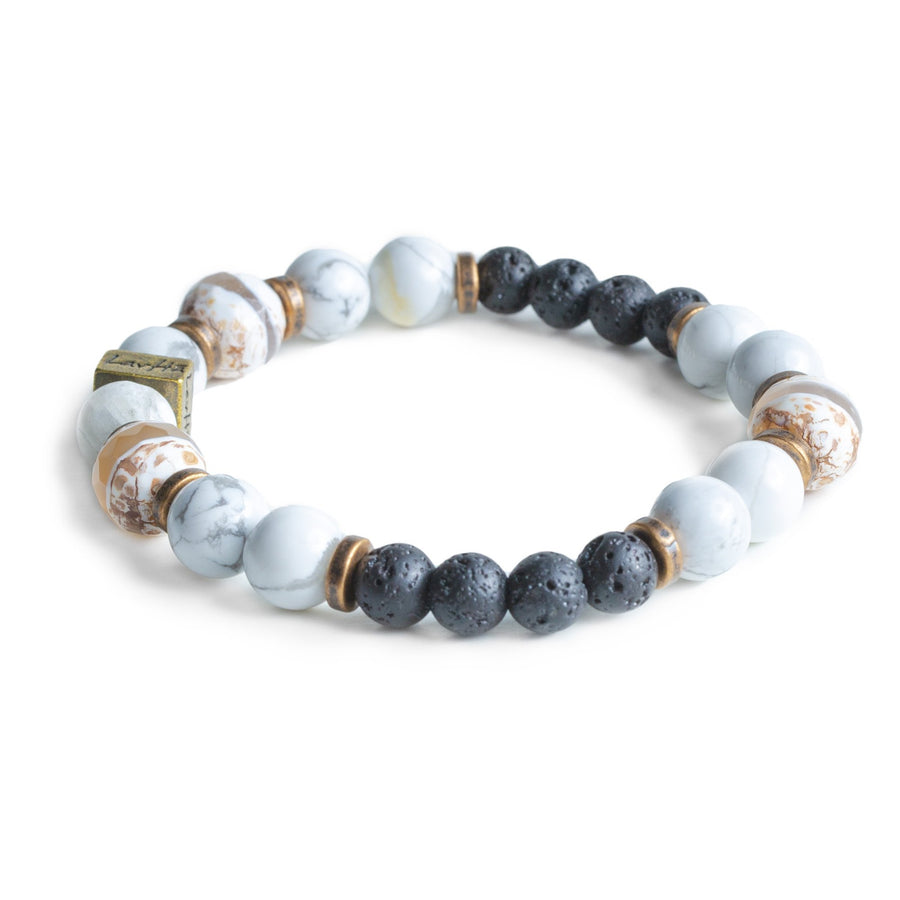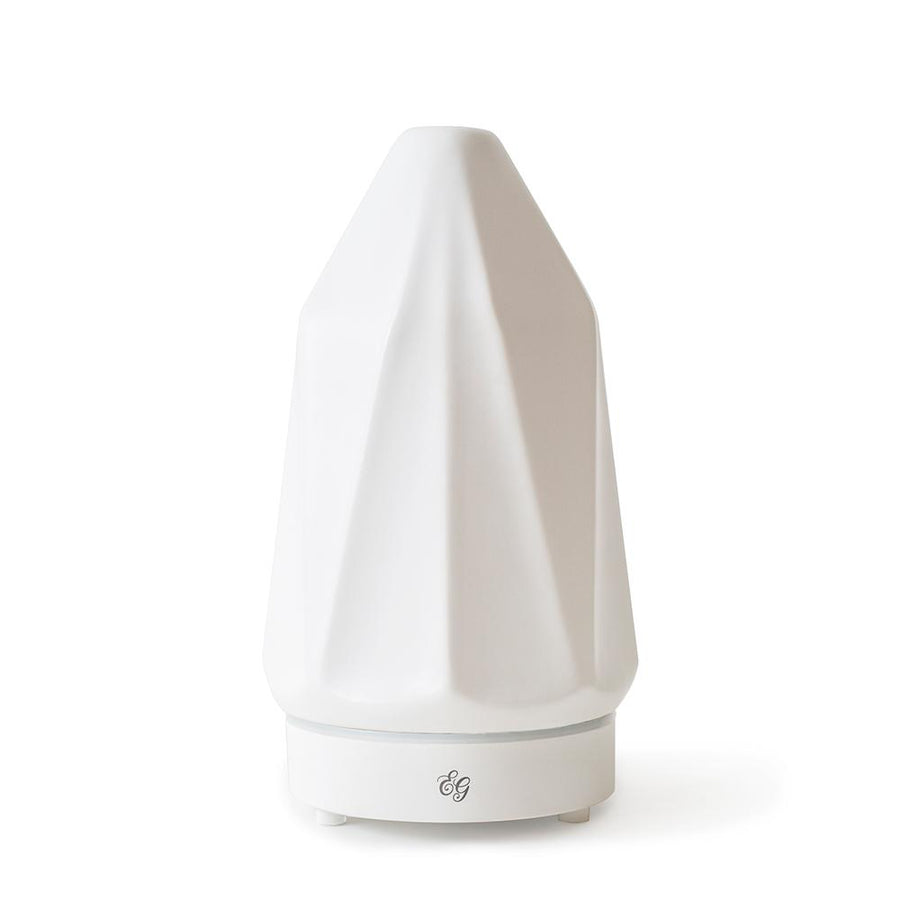Is It Safe to Ingest Essential Oils? Experts Weigh In

With more people turning to natural wellness, a common question arises: "Is it safe to ingest essential oils?" Essential oil enthusiasts often wonder about the potential benefits, but there are also essential oil ingestion risks to consider. From improving wellness to specific health benefits, the idea of taking essential oils internally has sparked considerable debate among experts and users alike. Can you take essential oils internally without compromising your health? In this article, we’ll explore both sides of the discussion, looking at scientific insights and expert opinions to help you make an informed choice.
Ready to dive into the facts? Let’s get started.
What is Internal Use?
Internal use is ingesting a substance, be it food, drink, or essential oils.
Common ways that people ingest essential oils are by:
- Taking them in capsules
- Adding them to food
- Adding them to drinks
- Taking them in drops
- Taking tinctures

Upon ingestion, the oil comes into contact with the mucous membrane which covers the mouth, esophagus, and stomach.
What Happens When Ingesting Essential Oils?
When essential oils are ingested, they come into direct contact with sensitive organs like the mouth, esophagus, and stomach. These oils, due to their ability to blend with fats, adhere to the mucous membranes lining these organs. This can lead to significant essential oil ingestion risks because pure, undiluted essential oils are incredibly concentrated. For example, approximately 250 pounds of lavender flowers are required to produce just one pound of Lavender essential oil. This concentration means that even a single drop of essential oil contains the potency of about ⅓ ounce of plant material.
Without proper essential oil safety tips, ingesting even a few drops of essential oil in water or other liquids could irritate or damage the delicate tissue in your digestive tract. The dangers of ingesting essential oils are real and include risks such as inflammation, toxicity, and even chemical burns when consumed undiluted. Always consult a professional before considering internal use to ensure safety and minimize health risks.
Further Safety Concerns When Ingesting Essential Oils
Gentle oils such as Lavender can cause adverse reactions when ingested, so it’s no surprise that ingesting essential oils for health with oils such as Oregano does much greater damage.
Here are a few recorded injuries that came from recommendations for essential oils for internal use:
- In 2014, a 57-year-old woman reported taking 5-10 drops of undiluted Oregano oil in water, a few times per day for four weeks. She then developed a rash on her palms and arms that lasted for 2-3 months. Her doctor diagnosed her skin irritation as a reaction to the essential oil ingestion.[1]
- In 2017, a 36-year-old woman ingested various essential oils and essential oil blends by taking 3 drops at a time in water, 2-3 times per day over six weeks.[2] After 2 weeks she developed acid reflux, an aching stomach, diarrhea, and a sore throat. Distributors from the essential oil company said she was detoxing and recommended she keep taking oils internally. However, a colonoscopy and endoscopy revealed that the lining in her stomach and esophagus had partially been eaten away.
- In 2018, a 47-year-old woman reported applying one undiluted drop of Peppermint essential oil to the roof of her mouth daily. This caused her throat to swell. Her doctor diagnosed that her esophagus was damaged and no longer contracted or released when swallowing.[3]

Unfortunately, this is only the tip of the iceberg in terms of damage caused by internal use, and organizations like Aromatherapy United have been giving a voice to those who’ve been injured by essential oils.
Analyzing injury reports has also revealed a common misuse of essential oils: adding them to water and drinking them. Oil and water do not mix. Therefore, when you add essential oils to water and drink them, the undiluted oil drops will come into direct contact with the mucous membrane lining your tongue, throat, esophagus, stomach, etc, causing injuries like those above.
GRAS Doesn’t Mean You Can Safely Ingest
The FDA has a classification for food additives known as GRAS (Generally Recognized as Safe), which includes certain essential oils for oral consumption.[4] This classification means that some essential oils are considered safe under specific conditions for limited use as flavoring agents, such as:
However, can essential oils be consumed safely without professional guidance? It’s essential to understand that the GRAS list does not imply that these oils are safe for casual ingestion. In the food and beverage industry, these essential oils are typically used in very small, controlled quantities measured in parts per million (ppm). For example, the concentration might be as minimal as 7-8 drops of oil in a 60-gallon tub to meet safety standards.
Without specialized equipment, most people cannot measure the best essential oils for ingestion at safe ppm levels in their home kitchens. Therefore, it’s crucial to follow professional guidelines to avoid the potential risks associated with essential oil ingestion. The GRAS classification is not a free pass to consume essential oils casually, but rather a regulated standard within controlled settings.
Can You Use Essential Oils in a Capsule Or in Cooking?
For those curious about how to safely ingest essential oils, using capsules may seem like a convenient option. In capsule form, the essential oil doesn’t immediately contact your organs, as it’s only released once the capsule dissolves in your stomach. However, even then, the essential oil can adhere to the stomach lining, potentially causing irritation or damage due to its high concentration.
When it comes to cooking, essential oils for internal health are generally more diluted in recipes than other ingestion methods. Cooking with essential oils, such as adding a drop of Lemon oil to a dish, might appear to be a practical way to use them. However, comparing the cost and flavor of Lemon essential oil to a fresh lemon reveals that fresh ingredients are often more economical and flavorful for culinary purposes.

If you’re considering using essential oils internally, always consult safety guidelines and dosage recommendations from trusted sources. Though essential oils offer health benefits, they must be used cautiously to prevent adverse effects.
Edens Garden’s Stance On Internal Use
At Edens Garden, we’re passionate about high-quality, pure essential oil, which is why we go to great lengths to ensure all of our oils meet rigorous quality standards. By GC/MS testing each batch of oil we offer and having each report approved by essential oil chemists and aromatherapists, we’re able to guarantee top-grade essential oils.
With that said, when dealing with severe health issues, it may be appropriate and effective to use essential oils internally. However, we cannot express enough that if you are using essential oils internally, you should consult an experienced aromatherapist. Many certified aromatherapists do not believe essential oils should be ingested, because in most cases, essential oils can be effectively used by inhaling or using them topically.
Essential oils are powerful substances that can have great health benefits when used properly but have the ability to cause damage when used improperly. With your safety in mind, Edens Garden does not recommend casually consuming essential oils.
However, if you're looking for recommendations on essential oils to diffuse or to dilute and apply topical some of our favorites are Juniper Berry, Bergamot, Frankincense, Eucalyptus, Cinnamon Bark, Clary Sage, and Tea Tree.
SOURCES:
- “Injury Reports | Aromatherapy United.” Aromatherapy United, 2017, aromatherapyunited.org/injury-reports, http://aromatherapyunited.org/wp-content/uploads/2017/05/Injury-Reports-Raw-Data-Thru-2016-2.pdf
- “Injury Reports | Aromatherapy United.” Aromatherapy United, 2017, aromatherapyunited.org/injury-reports, http://aromatherapyunited.org/wp-content/uploads/2018/02/2017-Injury-Reports-Atlantic-Institute-of-Aromatherapy.pdf
- “Injury Reports | Aromatherapy United.” Aromatherapy United, 2018, aromatherapyunited.org/injury-reports, http://aromatherapyunited.org/wp-content/uploads/2019/02/Injury-Reports-Submitted-in-2018-Only-1.pdf
- USFDA. Generally Recognized as Safe (GRAS). https://www.fda.gov/food/food-ingredients-packaging/generally-recognized-safe-gras
Grab The Essentials Here:
Leave a comment (Comments will be approved before showing up)
9 comments
Edens Garden
Hi Kimmie! We don’t recommend using essential oils in the mouth because they can irritate and damage the mucous membrane that covers the mouth and throat. Essential oils are used in products like toothpaste but at a dilution of parts per million which is safe but difficult to measure and achieve without the right equipment.
Kimmie
If adding 3-5 drops EG peppermint or EG Wintergreen to DIY toothpaste (coconut oil, baking soda, arrowroot) to a toothpaste tube, see here: https://thecoconutmama.com/homemade-toothpaste/ sooo is this safe in our mouth. We’re not swallowing it but your article explains mouth.
Edens Garden
Hi Gera! As mentioned in this article, we do believe that ingestion is occasionally warranted. But because casual ingestion is common amongst essential oil users, we feel the need to share the dangers that ingesting essential oils can pose. We hope that clarifies things, but we’re happy to continue this discussion if you have any additional concerns 😊
Gera
I understand that safety is a priority for a business, therefore Edens Garden would never recommend something that would make even one person unsafe.
However, because one woman reacted to a drop of peppermint oil in 2018, is it really necessary to tell people that they should never take oils internally?
How is that any different than saying peanuts shouldn’t be taken internally because some people are allergic?
Bergamot oil, for example, has been used for hundreds of years to flavor tea. There is much evidence that many oils are safe in small percentages (1-5%), for aroma and flavoring.
Edens Garden
Hi Colleen! Yes, we just ask that you cite us 😊
Colleen Devey
Great info, Can I share it on my website?
Sincerely,
Colleen D
Kristine
Thank you for posting this article. I have always wondered about this very topic. I have friends who use blends made for “ingestion” by well known companies… and I always hesitate. EOs are powerful. I will forward this to friends and I hooe they refer to the references of information listed at the end. Excellent. Thank you.
Gianna
THANK YOU for this!! I love EOs so much and have been buying EG oils exclusively for over five years now. It always made me feel really good when I would see the way EG prioritizes safety and proper use of EOs on their website. So many MLM companies promote internal ingestion and casual ingestion of their oils, not to mention UNDILUTED topical use. It’s scary to think of so many people using oils in an unsafe way, which is why I always recommend EG to friends. You always give the right directions for use, even when it means customers won’t use the oils as quickly. THANK YOU FOR YOUR INTEGRITY, Edens Garden.







Arlene
November 18, 2024 at 11:08 am
I’m so glad you are addressing this AGAIN because this really is serious and can be dangerous. It’s hard when you see influencers who sell EO and you see them ingesting it and showing people how to do so it makes me cringe. Someone here mentioned bergamot being used for hundreds of years but were they using it dried for tea or the oil? Most likely dried! Essential oils have been used for centuries, in the Bible you even read it there but they used them topically or as incense. I love your oils and will always use them but safely. Again thank you for these reminders!! It’s just not worth the risk!!